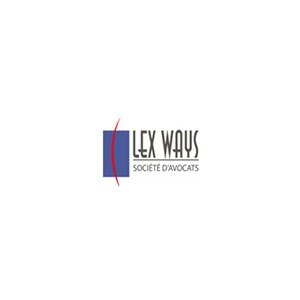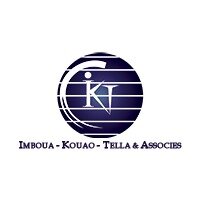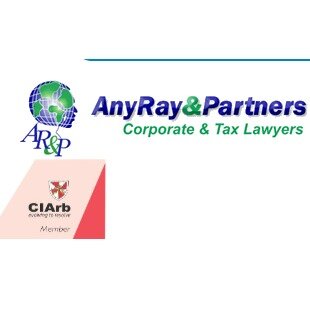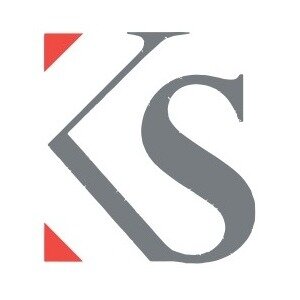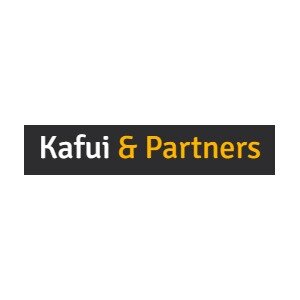Best Sanctions & Export Controls Lawyers in Cocody
Share your needs with us, get contacted by law firms.
Free. Takes 2 min.
List of the best lawyers in Cocody, Ivory Coast
About Sanctions & Export Controls Law in Cocody, Ivory Coast
Sanctions and export controls are important legal frameworks that govern how goods, technologies, and services can be traded across borders. In Cocody, Ivory Coast, these laws are designed to align with both regional directives from ECOWAS and national priorities. The main objective is to prevent illegal trade, uphold international obligations, and protect national security. Sanctions typically involve the restriction of trade with specific countries, entities, or individuals. Export controls regulate the transfer of sensitive products, including dual-use items that can have both civilian and military applications.
Why You May Need a Lawyer
Navigating sanctions and export controls can be complex, especially as rules often change in response to international events. Some common situations where professional legal guidance may be necessary include:
- Determining if your business deals are subject to specific export control laws.
- Understanding your obligations when trading sensitive goods or technologies.
- Ensuring compliance to avoid penalties, fines, or criminal charges.
- Responding to a government inquiry or investigation regarding an alleged violation.
- Dealing with blocked transactions or frozen assets connected to international sanctions.
- Filing an application for an export license or challenging a denial.
- Representing your interests in administrative or judicial proceedings related to sanctions enforcement.
Local Laws Overview
Sanctions and export controls in Cocody, Ivory Coast fall under broader Ivorian trade and customs laws, as well as international commitments. Key aspects include:
- Customs Code: Sets forth procedures for import and export, including documentation and declarations.
- Export Control Regulations: Regulate the movement of dual-use goods and items subject to international agreements.
- International Sanctions: Laws reflect obligations imposed by the United Nations, African Union, and ECOWAS relating to trade restrictions.
- Financial Controls: Banking and monetary policies directed by the Central Bank of West African States support enforcement against targeted individuals and organizations.
- Licensing: Certain exports or transfers of sensitive goods require prior approval from designated authorities.
Frequently Asked Questions
What are sanctions in the context of Ivorian law?
Sanctions refer to restrictions imposed on certain countries, entities, or individuals to achieve foreign policy and security objectives. They may include trade bans, asset freezes, and travel restrictions.
Who is responsible for enforcing export controls in Ivory Coast?
Enforcement is primarily handled by customs authorities and relevant ministries, such as the Ministry of Trade, often with input from security agencies for items of concern.
Do I need an export license for all goods leaving Ivory Coast?
No, only certain goods, especially dual-use items, military technology, or goods destined for sanctioned countries or entities generally require licences.
What happens if I violate sanctions or export control laws?
Violations can result in administrative penalties, heavy fines, confiscation of goods, or criminal prosecution, depending on the severity and intent.
Are sanctions and export controls only for large companies?
No, all individuals and businesses, regardless of size, must comply with these laws when exporting goods or services from Ivory Coast.
Can I apply for an exemption or license for restricted goods?
Yes, you can apply to the relevant government authority for an export license or an exemption, but approval is not guaranteed and is subject to strict review.
Is it possible to challenge a sanction or enforcement action?
Yes, a lawyer can help you file appeals or challenge decisions through administrative or judicial channels.
How do I know if my trade partner is on a sanctions list?
You should regularly check updated lists published by Ivorian authorities and international organizations such as the United Nations or ECOWAS.
Do financial transactions fall under export controls?
Yes, certain financial transactions, especially those involving parties on sanctions lists, are closely monitored and may be restricted.
How can a lawyer help me with sanctions and export controls?
A lawyer can assess your exports or business transactions, ensure compliance with legal obligations, represent you in proceedings, and provide practical advice to minimize legal risk.
Additional Resources
Several resources and organizations can provide up-to-date information and support:
- Ministry of Trade (Ministère du Commerce)
- Ivorian Customs Administration (Direction Générale des Douanes)
- Central Bank of West African States (BCEAO)
- ECOWAS Commission (for regional sanctions and trade policies)
- UN Sanctions Committees (for international updates)
- Bar Association of Côte d'Ivoire (for finding qualified lawyers)
Next Steps
If you require assistance with sanctions and export controls in Cocody, Ivory Coast, consider the following actions:
- Conduct an initial assessment of your exports and business transactions for potential compliance issues.
- Consult official resources or authorities for guidance on specific products or transactions.
- Reach out to a local legal professional who specializes in international trade law or sanctions compliance.
- Gather all records and documents related to your business activities for review by your lawyer.
- Stay informed about updates to local and international sanctions regimes to ensure ongoing compliance.
Seeking legal guidance early can help you avoid costly penalties and ensure your business operates in accordance with all applicable laws.
Lawzana helps you find the best lawyers and law firms in Cocody through a curated and pre-screened list of qualified legal professionals. Our platform offers rankings and detailed profiles of attorneys and law firms, allowing you to compare based on practice areas, including Sanctions & Export Controls, experience, and client feedback.
Each profile includes a description of the firm's areas of practice, client reviews, team members and partners, year of establishment, spoken languages, office locations, contact information, social media presence, and any published articles or resources. Most firms on our platform speak English and are experienced in both local and international legal matters.
Get a quote from top-rated law firms in Cocody, Ivory Coast — quickly, securely, and without unnecessary hassle.
Disclaimer:
The information provided on this page is for general informational purposes only and does not constitute legal advice. While we strive to ensure the accuracy and relevance of the content, legal information may change over time, and interpretations of the law can vary. You should always consult with a qualified legal professional for advice specific to your situation.
We disclaim all liability for actions taken or not taken based on the content of this page. If you believe any information is incorrect or outdated, please contact us, and we will review and update it where appropriate.



